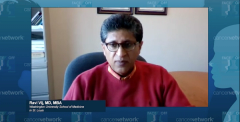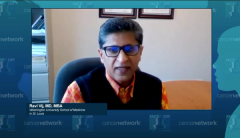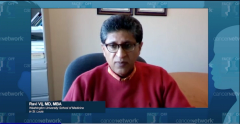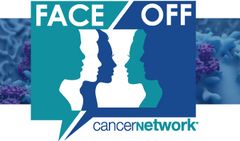
Future of Myeloma Treatment ‘Quite Exciting’ With New Immunotherapies
Luciano J. Costa, MD, PhD, discussed the future treatments being evaluated for the treatment of multiple myeloma.
Episodes in this series

As part of CancerNetwork’s Face-Off video series, Luciano J. Costa, MD, PhD, professor of medicine - hematology and oncology, Department of Medicine, University of Alabama at Birmingham, discussed the future treatments being evaluated for the treatment of multiple myeloma.
Costa: There are a lot of things that we're watching with great anticipation in the newly diagnosed myeloma scenario. One of them is the idea of response-adaptive therapy. Up to now, we learn that a therapy is better or not by comparing its performance in a population of patients with myeloma. And those therapies are usually given for a certain plane or into progression or intolerance, but has been very little in the way of adapting response; definitely therapy to the depth of response. And that is definitely a need because myeloma being such a heterogeneous disease, there are patients who are probably being undertreated, particularly patients with high-risk disease, despite receiving even quadruple therapy, transplant, but they're also likely to have patience for being overtreated.
So I think in the near future, we'll be asking questions, not to the whole universe of myeloma patients but to a subset defined by the depth of their response. And perhaps, the greatest example that is well underway, is the French study group [NCT03652064], where the patients receive a longer duration of quadruplet therapy, and then they are randomized for specific questions based on the achievement of [minimal residual disease (MRD)] negativity, essentially asking a de-escalation of therapy question on patients with MRD negative and escalation of therapy question on patients who are MRD positive.
The other element that I think I myself and I'm sure my colleagues are watching with great excitement is that we're seeing revolutionary innovations in the management of patients with multiple relapses, patients with triple-class-refractory myeloma, in the field of immunotherapy, particularly CAR T-cell therapy and bi-specific therapy. And it's very tempting to see how those therapies will perform in earlier lines of therapy. So there are a number of studies underway and are being planned that will deploy bi-specific T-cell engagers and CAR T-cell [therapy] in earlier lines of therapy, which I hope will increase the proportion of patients who have deep, durable responses, I think will likely increase the fraction of patients who are actually cured from myeloma. And then, just as important, provide a path to some patients to be able to be myeloma free and free of going therapy, free of maintenance therapy. So I think the future is quite exciting to this field.
Transcription edited for clarity.
Newsletter
Stay up to date on recent advances in the multidisciplinary approach to cancer.








































